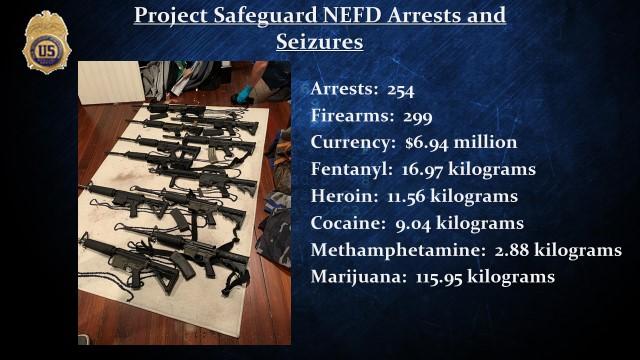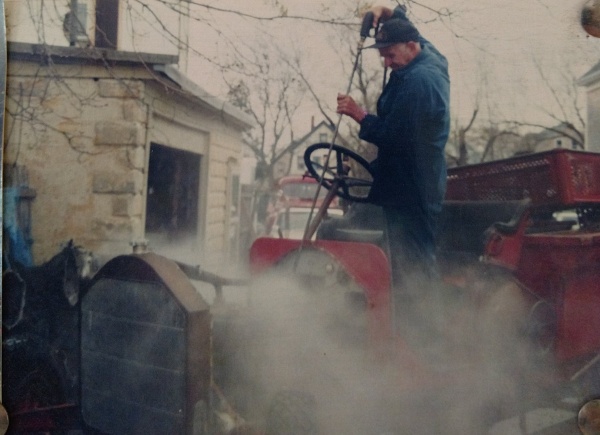By Colin A. Young
State House News Service
After wading through a raft of comments from municipal leaders, established industry players, and advocates, marijuana regulators on Tuesday ironed out the final wrinkles of their plan to establish a structure for home delivery of marijuana and create new business opportunities — and rejected a proposal to delay delivery until 2023.
Home delivery of marijuana has long been allowed under the state’s medical marijuana program, and advocates pushed for a delivery-only license in the recreational market, arguing that it will help level the playing field between large corporations and small businesses because the barriers to entry for delivery are typically far less burdensome than those for retail licenses.
The Cannabis Control Commission has been thinking about a delivery framework for almost three years and will launch delivery with a period of exclusivity for participants in the CCC’s Social Equity Program and certified economic empowerment applicants.
“Consumers want delivery, we wanted delivery for a long time, and equity and economic empowerment businesses are ready to be a significant part of this market,” Commissioner Shaleen Title said. She added, “We as a commission have taken it very seriously since day one … to live up to this mandate to include disproportionately harmed people in the industry and today was another significant step towards that. I’m really looking forward to it becoming reality sometime next year.”
The CCC met Tuesday morning to consider feedback and hold a final discussion about its draft delivery policy, which would create two delivery license types: a “wholesale delivery license” that could buy products wholesale from growers and manufacturers and sell them to their own customers, and a “limited delivery license” that would allow an operator to charge a fee to make deliveries from CCC-licensed retailers and dispensaries.
As the meeting began, Chairman Steven Hoffman said there were 23 distinct topics that one or more commissioners flagged for further discussion based on public comments. “Some are going to be quite contentious,” he said.
The first issue addressed was not contentious in the least: regulators agreed to rename the planned license types “marijuana delivery operator” and “marijuana courier,” respectively. But it didn’t take long for the commission to start batting around weightier issues, like a proposal Hoffman made to prohibit any individual or entity from holding more than one delivery license, therefore limiting each delivery business to one warehouse. He said his intent was to prevent one or two organizations from dominating the delivery marketplace in Massachusetts.
“This is not to protect retailers; that is not my logic or my motivation. My motivation is to allow for multiple entities to participate and compete in the delivery market and I’m very worried that someone can get a head start, be well-capitalized and make it very difficult, if not impossible, for other entities to get into this market,” he said. “So I actually believe what I’m proposing is actually defending and enhancing equity not limiting it.”
Hoffman’s proposal was met with pushback from commissioners who felt it would be counterproductive to create a new license type that is specifically meant to provide more business opportunities and at the same time cap the number of those licenses that any one person or business can have.
Ultimately, the CCC agreed to allow up to two delivery licenses — either two marijuana delivery operator licenses, or two marijuana delivery courier licenses or one of each — as a compromise. Existing CCC regulations already limit a person or entity to three total CCC delivery or retail licenses.
“So with just one, I think it really becomes whoever has the most central location and the biggest warehouse suddenly has a major advantage over everyone else. But if you can have two warehouses, I feel like it’s less of a zero-sum game because then there’s more of an opportunity to build your business the way you want it, based on how you set it up with the two warehouses,” Title, who was opposed to Hoffman’s initial proposal, said.
The CCC also forbid what Hoffman described as the “ice cream truck model” of delivery and made explicit that all inventory on a marijuana delivery vehicle must be associated with a specific order. The chairman said he thought that clarification was especially important if there is going to be a cap on the number of licenses (and therefore warehouses) any one business can hold.
“This might be being paranoid, but I don’t think so. A potential way around that restriction is for an entity to preload delivery vehicles, strategically position them around the state with inventory that matches their anticipated orders, and be able to respond quickly to those orders because they had these delivery vehicles scattered around the state,” he said. The commission also agreed to study the health of the delivery marketplace after two years of operations.
After the commissioners worked through each of the 23 policy issues Hoffman highlighted at the start of the meeting, Commissioner Jennifer Flanagan made a motion to delay the implementation of non-medical home delivery until January 2023.
“It is clear that there are two lobbying entities going on here. One is trying to say that we shouldn’t have licensing, it’s going to interrupt a certain marketplace that we already have. It’s saying things like local control is not going to exist and things like that. And then we have an entity that is talking about, really, sort of just handing the keys and letting this delivery get up and running,” Flanagan, a former state senator appointed to the commission by Gov. Charlie Baker, said. “Given the … policy discussion items that we have today and the conversation that we have had, it’s clear there’s still a lot of questions and it’s clear that there’s still a lot of uncertainty around delivery. I’ve said from the beginning that I’m uncomfortable with delivery this soon. I think we should have waited for that.”
The other three commissioners rejected Flanagan’s motion and she was the sole commissioner to vote “no” when the time came to vote on the totality of the delivery policy decisions made Tuesday. Her comments, though, ran parallel to concerns raised by 19 state lawmakers in a letter last week.
The bipartisan group of lawmakers told the CCC that they “believe that the wholesale delivery license category proposed in the draft regulations was not contemplated, nor supported, by the enabling legislation” and asked the commission to reconsider its plan to take a final vote on the regulations next week.
The CCC did not directly address the lawmakers’ concerns during Tuesday’s meeting, but Hoffman told reporters afterward that the commission feels comfortable that it has the authority it needs to move ahead with its delivery regulations.
“We do respectfully disagree … We absolutely feel that we do have the authority under the statute,” Hoffman said. “We certainly wouldn’t have taken the action we took today without believing we have the authority.”
Other lawmakers also weighed in during the comment period — like Reps. Maria Robinson and Lindsay Sabadosa, who signed onto comments related to the CCC’s proposed two-driver minimum for delivery vehicles, and Rep. Mike Connolly, who wrote to support the CCC’s draft delivery framework.
“The new ‘wholesale’ license type exclusively for social equity and economic empowerment is a major step toward fulfilling the intent of the law that we in the legislature enacted for an equitable industry,” Connolly wrote to the commission. He added, “In this time of COVID-19, delivery of adult-use cannabis is particularly important, as it offers the potential for better social distancing within the retail sector, and it also offers numerous opportunities for economic empowerment in this time of economic hardship for so many.”
At the start of Tuesday’s meeting, Hoffman said the CCC received comments from about 80 people or organizations and picked up on the disagreements that were evident.
“They were well-reasoned, compelling arguments and, unsurprisingly, not all aligned,” Hoffman said. “I want to acknowledge this is a very important issue, it’s a very contentious issue, it’s a very difficult issue, and certainly the public comments that we received reflected that.”
The CCC released the public feedback it received and summarized comments related to the regulations, and the documents show a stark divide — one portion of commenters generally propose tweaks to what the CCC has adopted while the other portion tends to argue that what the CCC adopted is either in conflict with state law or is the result of a rushed process that left municipalities out.
“I’m more comfortable pushing forward with delivery based upon today’s discussion because I do think we listened to a lot of the concerns that people had,” Hoffman said. He added, “We’ve been patient here, we’re not rushing into anything. We started talking about this in the fall of 2017 and in our draft regulations in the winter of 2018, we had delivery. We had a public comment period … we got a lot of pushback and a lot of ‘learn to walk before you run’ and we listened to that and we deferred this for three years now.”
The CCC will meet again on Oct. 29 to review the actual regulatory language of the policies discussed Tuesday and to vote on the full suite of regulations.










